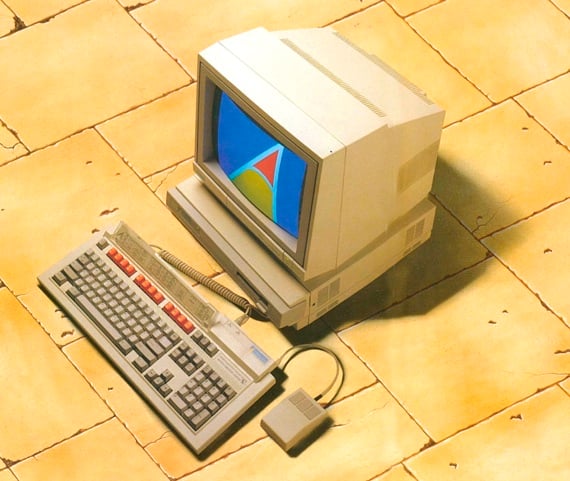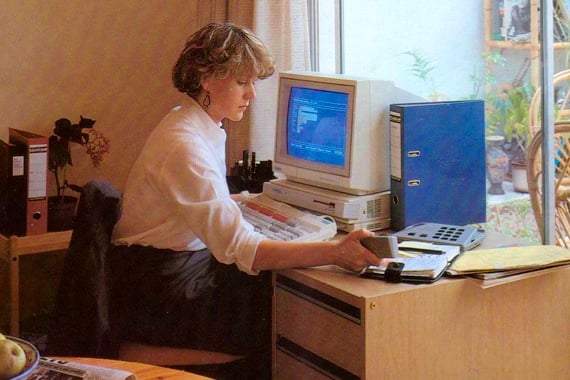This article is more than 1 year old
Strong ARM: The Acorn Archimedes is 25
The first ARM computer
Archaeologic The Acorn Archimedes is 25 years old this month. The first machines based on the company's ARM (Acorn Risc Machine) processor were announced in June 1987, the year after the 32-bit chip itself was launched.
Four versions of the Archimedes were released in 1987: the A305, A310, A410 and A440. The first two had 512KB and 1MB of memory, respectively. You could upgrade an A305 to an A310 simply by adding in the extra Ram.

Acorn's Archimedes 310
The A410 had 1MB of memory too, but the A440 had a (then) whopping 4MB and came with a 20MB hard drive as well as the 800KB 3.5in floppy drive – which also supported 640KB discs for BBC Master compatibility – found on the other three models.
Upgrading the A305 or A310 to A410 level was a matter of adding in a "Podule" backplane circuit board, which contained the hard drive controller. You also had to add, of course, the hard drive. There was room for two Podules on the A300 series.
The new BBC Micro
The A300 series was pitched at home users – essentially as direct replacements for, respectively, the BBC Micro and 1986's BBC Master; the two A300 models had "British Broadcasting Corporation Microcomputer System" stamped on the keyboard, along with the familiar owl logo. The pricier A400 series were pushed at businesses and technical organisations. Their Archimedes of choice was quickly revealed to be the A440, a machine that would have set them back a colossal – now, let alone then – £2299. The own-brand colour monitor was £200 on top of that, though the monochrome screen was just 50 quid.
Despite the price, and that fact that it didn't become available until the Autumn of 1987, the A440 proved to be the most popular of the the two, and by early 1988 the A410 began to disappear from Acorn's marketing literature.

Home computing in the late 1980s, Archimedes style
Source: Acorn Archimedes 300 series brochure
By the time of the A440's arrival, the A305 and A310 – priced at £799 and £875, respectively – were winning positive reviews after going on sale in late July/early August 1987.
The microcomputer bible of the time, Personal Computer World, reviewed the A500 – the prototype on which the shipping Archimedes were based, and writer Dick Pountain said it "felt like the fastest computer I have ever used, by a considerable margin".
